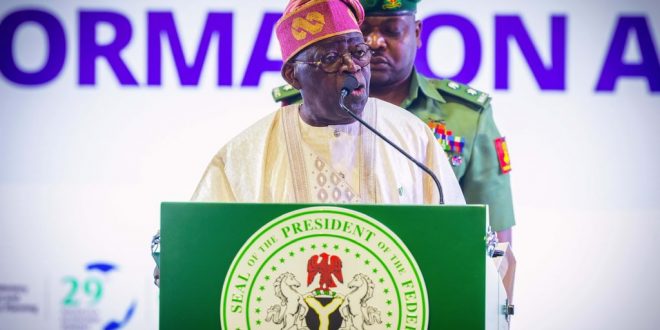The Nigerian Federal Government has allocated N135.4 billion to the thirty-six states of the federation and the Federal Capital Territory (FCT) following the second Independent Assessment of outcomes attained under the Nigeria COVID-19 Action Recovery and Economic Stimulus (NG-CARES).
A World Bank-assisted initiative, NG-CARES, is a Performance For Results Programme with a substantial budget of $750 million.
Dr. Abdulkarim Obaje, the National Coordinator of the NG-CARES Programme, conveyed this information in a statement released by Suleiman Odapu, the Information and Communication Officer at NG-CARES, on Sunday in Abuja.
According to Obaje, the allocation of funds was tied to the outcomes attained by States and the FCT in their endeavors to aid the underprivileged as part of the NG-CARES initiative.
He said the three top-performing states are Nasarawa, Cross Rivers, and Zamfara, each earning N13.6 billion, N10.9 billion, and N10.2 billion respectively following the second round of assessment of the program.
”The top three best-performing states in this Second Round of Assessment are Nasarawa which earned N13,697,828,496.96, Cross River N10,944,747,818.84, and Zamfara N10,231,055,267.82.
“This is a milestone achievement in the efforts of President Bola Tinubu’s administration at providing funds towards addressing multi-dimensional poverty in the country,” Obaje noted.
Furthermore, He lauded Senator Atiku Bagudu, the Minister for Budget and Economic Planning, for effectively leading the coordination of the NG-CARES program across states and the FCT at the federal level.
The national coordinator also commended state Governors, the FCT Minister, and the World Bank for providing support
the NG-CARES Programme, established by the Federal Government, serves as a strategic initiative designed to act as a shock response mechanism and a distribution channel, effectively reaching out to impoverished and vulnerable populations.
The system operates through 158 integrated Ministries, Departments, and Agencies across all 36 State Governments and the FCT Administration, demonstrating a well-established history of success in previous Donor-supported initiatives.
The program aims to expand access to livelihood support and food security services and grants for poor and vulnerable households and firms.
 Hottestgistnaija.com
Hottestgistnaija.com





